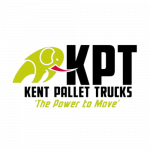Contract Hire
This form of finance is chosen by a large proportion of users of materials handling equipment. If you require one rental to cover both the finance and maintenance of the equipment, giving fixed budgeting with no unexpected repair bills, you can choose a Contract Hire agreement. The agreement runs for a specified period, and the equipment is collected by the dealer at the end of the period when a new truck can be supplied.
- Frees up capital for other investments
- Allows easy budgeting for the upkeep of the equipment throughout the term
- Deals can be structured to suit your needs – rental and return conditions fixed at the outset
- Tax-efficient – 100% of rentals paid are normally offset against taxable profits
- Off-balance sheet funding – equipment does not depreciate on your balance sheet
- Improves gearing ratio
- Rentals are classed as a revenue expense in the Profit and Loss account
- Use of the equipment may increase your productivity – it could ‘pay for itself’ – rentals matched to income
- VAT is payable on each rental rather than in full at the outset (which is the case for HP)


Hire / Lease Purchase
Unwilling to spend a large amount of capital on a forklift in one go? Hire Purchase means you can pay for it in manageable, fixed instalments, spread over a period of time. Funding is on balance sheet. The asset is purchased on your behalf and owned by the finance company until final payment is made, when ownership automatically transfers to you.
- Finance available for up to 100% of the purchase price (excl. VAT)
- Flexible and tax efficient funding
- VAT payable on the rentals, not upfront on the purchase of the assets.
- At the end of the agreement you can either retain the asset for a nominal annual sum or sell it and retain most of the sale proceeds
- You can normally offset the rentals against taxable profits
- Freedom to make your own arrangements for maintenance, repairs and servicing
Finance Lease
This is a flexible, tax efficient way to acquire a forklift without using up much needed cash reserves. The finance company retains ownership of the asset, but you can sell it on their behalf at the end of the term and keep most of the sale proceeds. Funding is on balance sheet.
- Frees up capital for other investments
- Regular, fixed payments – allows for easy budgeting
- Tax advantages – as well as reclaiming VAT (if VAT registered)
- You may be able to claim capital allowances and also offset repayment interest against profits
- Tax-efficient – 100% of rentals paid are normally offset against taxable profits
- Flexibility – you choose how the finance is structured: with a flexible deposit, fixed payments and perhaps a final balloon lump sum
- Unlike some bank loans, additional security is not usually required, and the agreement is not payable on demand if conditions are being met
- Freedom to make your own arrangements for maintenance, repairs and servicing

